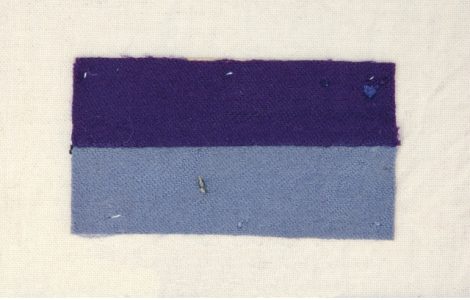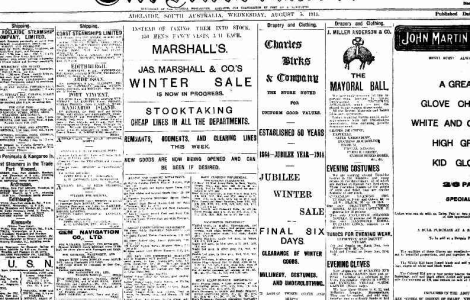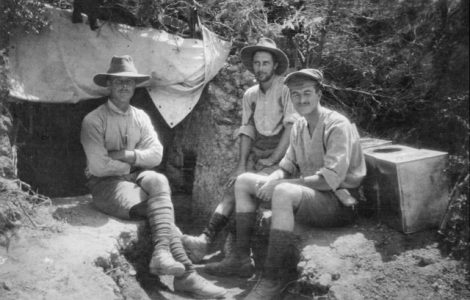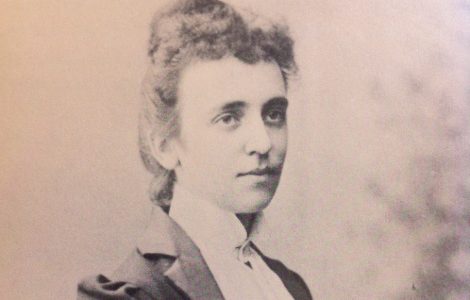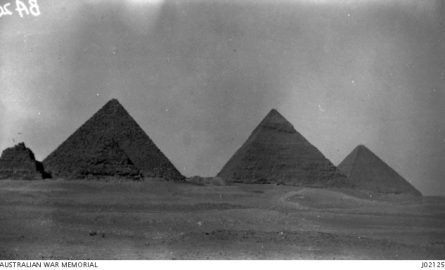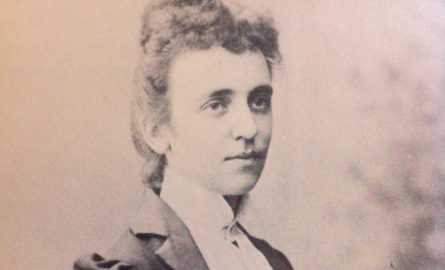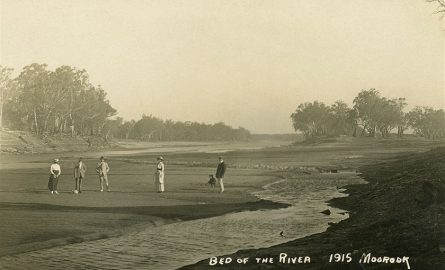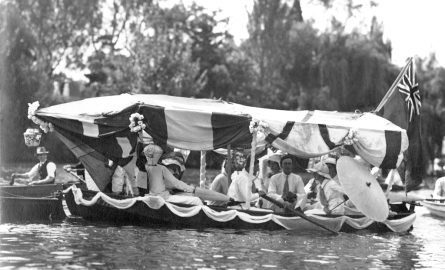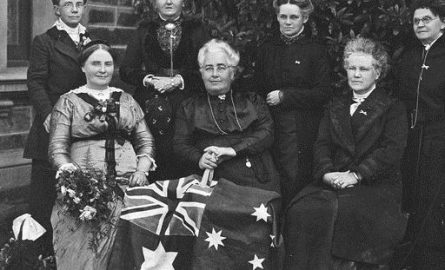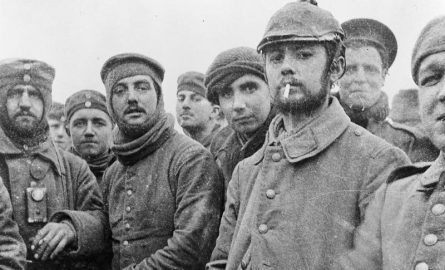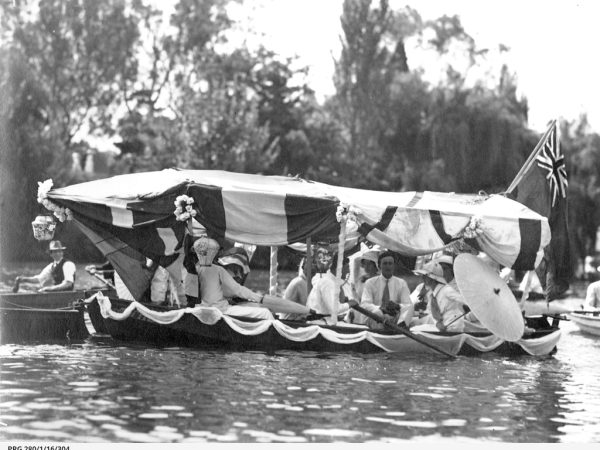

Decorated boat, Henley on Torrens 1914. Image courtesy State Library of South Australia PRG-280-1-16-304
Glossary Terms
Topics
Henley on Torrens Regatta, 1914-1915 drought, Conscription in Europe, Christmas truce
People
Terrell, Frederick Leopold, Cooper, Ethel, Avery, Louis Willyama
Places
Organisations
Advertiser, Red Cross, 10th Battalion, Women's Christian Temperance Union
December, 1914
This month: Our correspondent, Louis Avery, arrives in Egypt & immediately lands himself in trouble! People at home still find time for Christmas merriment, but with loved ones away it is a very different Christmas from last year. Christmas was not so cheerful for Ethel Cooper in Germany, but at least she was informed that she can stay in her Leipzig home.
CHRISTMAS 1914
With a war waging half a world away and so many of our own preparing to join the fray, what was Christmas like for South Australians 100 years ago? There was much that would be familiar today – the papers were filled with gift suggestions and late night shopping until 9pm allowed for last-minute gift purchases. For those who were in Adelaide, there was a welcome cool change on Christmas Day, with the temperature rising only to 78 degrees Fahrenheit (around 26 degrees Celsius) compared with 102 (39) the day before. Louis Avery arrived in Egypt earlier in the month with the Australian forces and had a taste of Cairo on 25 December – a little later than many others in his Company owing to an unauthorised attempt to explore the city 14 days earlier. He was confined to barracks for the fortnight. He was unimpressed by what he found: ‘great disappointment and utter disgust’ is how he described it in his diary. For many of the troops, this would have been their first Christmas away from family and loved ones. No doubt many were feeling homesick.
It wasn’t a terribly jolly day for Ethel Cooper in Leipzig either. Although, inexplicably, she had been given permission to stay in the city when all of her Allied acquaintances had been sent away (and was therefore able to welcome home her pet crocodile, Cheops), her impression of Christmas was that there was ‘no sort of festivity anywhere’. Ethel’s letters also reveal that the German Army was being boosted by conscripting all males between 18 and 45: there were no signs that the war would be over quickly.
It seems that none of our correspondents had a particularly jolly festive season: in South Australia Leo Terrell continued to hunt for work with no success. He enjoyed a ‘fine’ Christmas dinner, but on his 25th birthday – two days later – he was again focussed on his dependence on his parents. There are frequent mentions of a young woman named Clara Lewis in his diary and he does seem a little more chipper when she is in his thoughts.
THE CONTINUING DROUGHT
On 31 December, The Advertiser published an article reflecting on the year that was. The Dying Year reflected not only on the terrible conflict in Europe, but also the devastating drought and its consequences in South Australia. There were some significant rains across parts of the state during the month – enough, indeed, to wash out the northern railway line. However overall, the impacts of the drought were still felt and the paper presented grim predictions about the wheat harvest. They also reported on the progress of the new Millbrook Reservoir and the sad state of the Murray: a meeting of water managers from NSW, Vic and SA to solve the problem was adjourned without agreement. Some things never change!
FUNDRAISING AND ENTERTAINMENT
The Henley on Torrens regatta took place early in the month and like so many other public events was used as an opportunity to raise funds for the war effort – in this instance the Belgian Relief Fund. Other events and fundraising drives focussed on the Red Cross Fund, the Patriotic Fund, Comforts for Horses, blankets for the troops, nurses at the front and articles of clothing for Indian troops fighting in Europe. Adelaide also hosted a Scottish temperance advocate, Helen Barton, who was here to add her voice to the campaign for the early closure of bars.
THE WAR IN EUROPE
The battles continued to rage in Europe. Yet amongst all this chaos was a remarkable event on the battlefields of Europe, which is now known as the Christmas Truce. Although not a compete truce, in many places there was an unofficial ceasefire on Christmas Eve and Christmas Day, when many soldiers left the trenches to mingle in no man’s land. Sadly, the following day hostilities resumed.
As 1914 drew to a close, it was clear that the war was not going to be concluded quickly. The first South Australian troops had left our shores to do their patriotic duty. Loved ones at home had no idea when they would see them again, as more and more were coming forward to join up.


